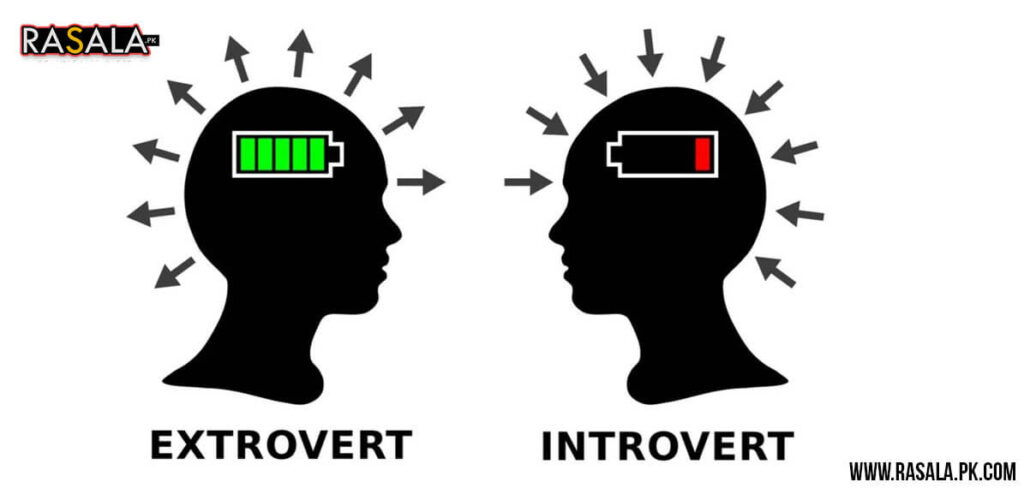Are you often caught between the conflicting desires of solitude and socializing? Are you energized by being alone yet craving meaningful connections with others? Understanding whether you lean towards introversion or extroversion can shed light on your preferred social dynamics, communication styles, and personal growth strategies. In this blog, we’ll dive deep into the fascinating world of introversion and extroversion to help you uncover your true nature. Let’s embark on a journey of self-discovery and explore the traits that define these personality types.
Defining Introversion and Extroversion: This section comprehensively defines introversion and extroversion. We’ll explore the fundamental differences between these two personality types, including how they derive energy, process information, and engage with the world around them.
Signs You Might Be an Introvert: Are you curious if you exhibit introverted tendencies? We’ll discuss various signs indicating introversion, such as a preference for solitary activities, introspective nature, and the need for recharge. Examining these characteristics gives you valuable insights into your personality and social priorities.
Indications of an Extroverted Nature: Conversely, extroverts possess distinct traits that set them apart. We’ll delve into the signs that suggest you might lean towards extroversion, including a strong affinity for social interactions, thriving in group settings, and drawing energy from external stimuli. Discover whether you align with these extroverted qualities and learn how they influence your daily life.
The Ambivert: A Blend of Both Worlds: Not everyone neatly fits into the introvert-extrovert dichotomy. Enter the ambivert—a unique blend of both personality types. We’ll explore the characteristics of ambiverts and how they navigate the challenges and benefits of straddling the introversion-extroversion spectrum.
Recognizing Strengths and Challenges: Understanding whether you’re an introvert or an extrovert can help you identify your innate strengths and potential challenges. We’ll discuss the unique abilities introverts bring to the table, such as deep thinking and empathetic listening, and the advantages extroverts possess, like strong communication and networking skills. By recognizing these traits, you can leverage them to thrive in various aspects of your life.
Nurturing Your True Self: Once you’ve discovered your introverted or extroverted tendencies, you must promote your authentic self. We’ll provide tips and strategies for introverts to recharge and maintain their well-being in social situations and guidance for extroverts to find balance and embrace moments of solitude.
Embracing the Spectrum: Ultimately, introversion and extroversion exist on a spectrum, and each person falls somewhere along that continuum. We’ll emphasize the importance of embracing your unique position and respecting the diversity of personalities. Understanding the intricacies of introversion and extroversion fosters empathy and better communication.
As the name suggests, Ambivert: A Blend of Both Worlds: Ambiverts represent a middle ground between introversion and extroversion. They possess characteristics of both personality types, making them highly adaptable in various social situations. Ambiverts can flexibly adjust their energy levels and social interactions based on the context and their personal needs.
Ambiverts often possess a balanced blend of introverted and extroverted traits. Depending on the circumstances, they can enjoy and thrive in both solitude and social environments. Ambiverts may sometimes feel energized and engaged in lively group discussions and social events, while at other times, they may seek solitude to recharge their energy.
One of the defining qualities of ambiverts is their ability to navigate between different social dynamics effortlessly. They possess extroverts social skills and communication abilities, allowing them to connect and engage with others effectively. Simultaneously, they also have the introspective and reflective nature of introverts, enabling them to think deeply and process information internally.
Ambiverts may exhibit a flexible approach to socializing. They can enjoy meaningful one-on-one conversations where they can listen attentively and provide thoughtful insights. At the same time, they can also thrive in group settings, effortlessly participating in discussions and contributing their ideas.
Understanding that you fall into the ambivert category can clarify your social preferences and behaviors. It allows you to embrace the duality of your personality and recognize that it’s entirely normal to possess traits from both ends of the introvert-extrovert spectrum. Being an ambivert grants you the advantage of being adaptable, versatile, and capable of thriving in various social situations.
By recognizing their ambivert nature, individuals can develop strategies to effectively maintain balance and meet their social and emotional needs. Ambiverts can learn to manage their energy levels by creating a harmonious mix of social interactions and alone time. They can choose activities that align with their current energy levels and engage in social events that allow them to recharge or express themselves authentically.
Ultimately, being an ambivert is a unique and valuable quality. It allows individuals to engage with the world in a way that feels authentic and fulfilling. Embracing and celebrating the ambivert nature will enable individuals to fully harness the strengths and advantages of introversion and extroversion, leading to a more balanced and satisfying life.
By the end of this blog, you’ll have a clearer understanding of whether you’re an introvert, extrovert, or ambivert. Armed with this knowledge, you can navigate your personal and professional relationships with greater self-awareness, acceptance, and appreciation for the strengths and gifts each personality type brings. Remember, no matter where you fall on the introvert-extrovert spectrum, you possess unique qualities that make you who you are—a truly remarkable individual.

